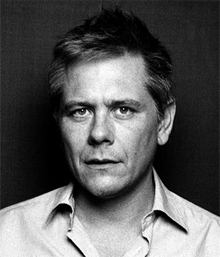Walter Kirn: What's needed today is civility, politeness and inclusion
CBS News asked noted figures in the arts, business and politics about their experience in today's civil rights movement, or about figures who inspired them in their activism.
Walter Kirn, author ("Up in the Air")
Please share a civil rights figure who influenced you personally.
Well, this goes back a little earlier than the sixties, but Paul Robeson -- who my family legend had it that he came to sing in Akron, Ohio, where my father's family lived back in the fifties -- was not allowed to play at venues. The place that was going to have him, barred him because he was too controversial.
My grandfather, who was on the school board at one of the high schools, let him sing and gave him a venue, and that story was sort of passed down through the family.
I remember as a boy in the late sixties and early seventies being told that story, at a time where I was very confused about what was going on in the country. I lived in a little town in Minnesota that was all white pretty much, and here I was seeing on TV these images of Martin Luther King's assassination when I was about six or seven years old, not understanding what was going on there. I remember seeing the TV images of the riots going on in the big cities and it was very confusing -- and that story was told to me by my father as an example of how long this movement had been going on, how long this struggle has been going on. It gave a context for what I was seeing on TV and reading in the newspapers. So what was a very confusing set of images and headlines for a little boy, made more sense when I understood there had been this kind of long, agonizing march for freedom.
Is there something that you would like to share about your personal connection to civil rights issues?
I came from a little town in Minnesota, it was a rural place, and I didn't have a lot of experience with people of other races -- Lutherans and Catholics were about as far apart as it got there. But I moved out East and went to college, and I was in New York City in my early twenties.
My brother, from Minnesota, won a contest back at his college to come and visit New York City -- he had a friend of his who was on the football team who is African American and they'd both won this prize, a stay at the Plaza Hotel. They came and we all went over to the Plaza Hotel and as we were walking into the Plaza the security guard stopped my brother's friend and asked him what he was doing there. It was the first moment where I've really seen that kind of discrimination personally and it shocked me. it had been all sort of abstract as a little kid, but suddenly I saw what was going on
What needs to happen in the next 50 years for equality to be fully realized in the U.S.?
A lot has been done [on the] judicial and governmental level -- we've got a black president, we've got a fairly good set of laws, we've got a court system that seems to administer them fairly well. But we still have a long ways to go in terms of our everyday civility and sense of politeness, kindness and inclusion.
What really needs to change is people's hearts and everyday instincts and reflexes. I think this is a revolution that has filtered down from the top into people's everyday lives, and that's where it stands now -- in the offices, in the homes, in the streets.
For more info:
- walterkirn.com
- Walter Kirn's Permanent Morning (blog)
- Follow Walter Kirn on Twitter and Facebook
